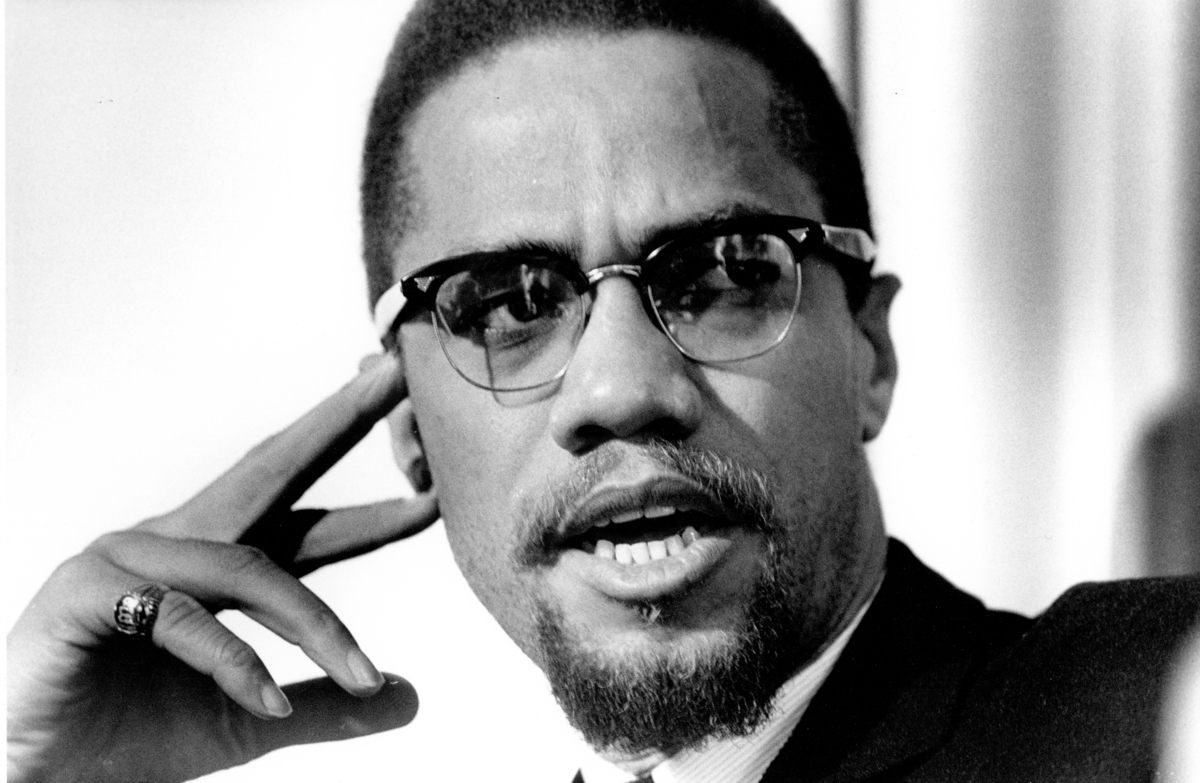On the evening of Saturday, September 19th, the Yale Film Society (YFS) and the Religion and Social Change Film Series hosted a screening of Spike Lee’s masterpiece biopic Malcolm X at the Whitney Humanities Center (WHC). The beautiful WHC auditorium, paired with the grainy 35mm film, created a powerful atmosphere in which the depiction of Malcolm X’s life as a black activist and Nation of Islam minister was made all the more impactful. Malcolm X is one of several films that will be screened at WHC this semester, and if Saturday’s turnout is any indication of the series’s popularity, the YFS should expect a warm reception for future screenings. Although the auditorium was by no means packed, it was comfortably filled with Yale students and New Haven residents alike, who all arrived early and excited for the 7pm screening.
Malcolm X is an incredible film, a masterpiece of cinematography, acting, and directing which brings The Autobiography of Malcolm X, as told by Alex Haley, to life on the big screen. The film’s narrative begins during Malcolm Little’s teenage years and continues through his early encounters with drugs and crime, interlaced with flashbacks spanning his childhood. The film shifts focus once Malcolm is incarcerated and introduced to Baines, a Nation of Islam minister and fellow inmate. Malcolm X, having dropped his last name, rises quickly through the Nation of Islam’s ranks. As he accrues more power, Malcolm X simultaneously garners more disdain and animosity from both white Americans and other ministers within the Nation of Islam, including Baines.
Baines is probably the biggest dramatic liberty the film takes; he adds an extra layer of betrayal and intensity, but he is by no means essential to its plot, as he doesn’t exist in the Autobiography (or in real life). The film also tends to distance itself, and noticeably so, from the Nation of Islam’s views and ideas: it very rarely details the Nation’s actual teachings, preferring, for example, to show the idea of a clash between the followings of Malcolm X and Martin Luther King, Jr. rather than to show discussions within the movement itself. And all of Malcolm X’s speeches shown in the film, regarding the specificities of the Nation, are followed by critiques from skeptics. While this artistic choice can be explained as a lead-in to Malcolm X’s change in views (prior to his assassination), it is likely just an attempt, on the part of the film’s producers, to temper the film’s content.
The last section of the film follows Malcolm X’s pilgrimage to Mecca, roughly as it occurred, and stretches out to the end of his life and legacy. On his travels to Mecca, after leaving the Nation of Islam, Malcolm X was astonished by the diversity of Islam and by the interracial love and acceptance the religion fostered. He accordingly changed his views regarding his practice of Islam and leadership within the movement. However, just as he began to preach a more moderate philosophy upon his arrival home, Malcolm X was assassinated.
Although the film attempted to convey the inner turmoil that plagued Malcolm X prior to his shift in views, it failed to salvage this striking change which the actual autobiography better illustrated. The film also links Malcolm X’s teachings to modern South African society: images of Soweto protests overlay his eulogy, and Nelson Mandela makes a cameo as a schoolteacher in a South African lesson on Malcolm X. The movie, released in 1992, would have been extremely poignant as the fight against apartheid came to a climax.
The movie in its entirety presents its audiences with huge challenges, but the audience on Saturday rose to meet every one. It was a beautiful thing to sit in an auditorium with a sizably black audience and hear everyone sigh in unison at the recognition of Nelson Mandela’s face or the sound of Sam Cooke’s voice, to gasp and laugh and mourn along with the characters.
Malcolm X portrays a powerful and critical journey that should resonate now more than ever with the Yale community. During such a contentious time, when Yale is relearning what it means to be a community with common goals, attempting to open up a dialogue regarding the past’s role in its contemporary culture, the story of Malcolm X is an important one to keep in mind. We often need to be reminded that we must remain open minded to readjusting our individual stances, and Malcolm X’s own willingness to do so should be a model to us all.
by Eleanor Pritchett



Ellie has a beautiful soul